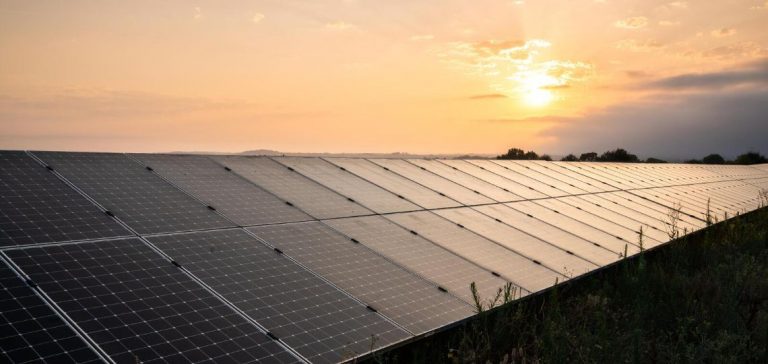European Energy has announced the start of construction for its first solar farm in Latvia, located near Targale in Ventspils County. With a planned capacity of 148 megawatts (MW), this installation will become one of the largest in the country for solar energy.
The solar farm will be equipped with 240,000 solar panels, allowing an annual production of approximately 154,550 megawatt-hours (MWh). This production will be sufficient to power about 40,000 European households, significantly contributing to the local energy demand.
An Ambitious Project for Latvia
European Energy expects the solar farm to be connected to the electrical grid by the end of 2025. This project aligns with Latvia’s ambitious climate goals, which aim to increase the share of renewable energies in its energy mix. Despite a strong tradition in hydroelectricity, the country’s solar potential remains largely untapped.
Alnis Bāliņš, head of the Riga office of European Energy Latvia, emphasized that electricity production from renewable sources has seen significant growth in recent years. However, the current pace is not sufficient, and the region still needs to further develop solar and wind energy.
Strengthening Latvia’s Position in the Renewable Energy Market
To date, Latvia has lagged behind its neighbors in the construction of solar energy parks. In 2023, Estonia’s solar power capacity reached 822 MW, Lithuania’s 1,165 MW, while Latvia’s stood at only 500 MW. European Energy’s new project represents a significant leap forward for the country, strengthening its position in the renewable energy market.
Thorvald Spanggaard, Executive Vice President and Head of Project Development at European Energy, stated that Latvia is a key market for the company, notably due to the growing appetite for renewable energy. The Latvian National Energy and Climate Plan anticipates that the share of renewable energy in electricity generation will increase significantly, from 53% to 80% by 2030.
Towards Increased Energy Independence
To achieve this target, the production of wind and solar energy must be intensified. A key driver for this development will be the willingness of electricity consumers, both public and private, to engage in long-term agreements to purchase green energy. This strategy perfectly aligns with European Energy’s vision and development strategy.
This solar farm project is therefore not only an important step towards Latvia’s energy independence but also an example of how companies can contribute to the energy transition in Europe.






















